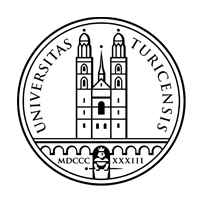雅思写作避雷指南:避开陷阱,斩获高分
Editor:Mark| Time:2025-02-23一、精准审题,把握核心
雅思写作的题目虽简短,但每一个词都可能蕴含关键信息。审题时,务必仔细剖析题目中的关键词、限定词以及话题范围。比如,题目若问“Some people think that the best way to improve road safety is to increase the minimum legal age for driving a car. To what extent do you agree or disagree?”,关键词便是“the best way”与“increase the minimum legal age for driving”,话题围绕道路安全提升方法展开。此时要明确,需论述提高驾车最低法定年龄是否是改善道路安全的最佳方式,不可偏离此核心。
有些题目会包含多个观点,如“Some people believe that a country benefits greatly with a high percentage of young university graduates. However, others think that a large number of young people with university education only leads to high unemployment. Discuss both views and give your own opinion.”,这种情况就需要全面兼顾两个观点,并清晰阐述自己的立场,否则很容易因偏题而丢分。
二、构建清晰逻辑框架
一篇逻辑严密的文章,能让读者轻松跟上作者思路。常见的逻辑结构有“总 - 分 - 总”“问题 - 解决”等。
以“总 - 分 - 总”结构为例,开头部分要清晰地引出话题并表明立场。如在论述科技对教育的影响时,开头可以是“With the rapid development of technology, education has been undergoing profound changes. In my opinion, technology brings more benefits than challenges to education.”。
中间段落则是具体论证部分,需合理组织观点。若支持科技对教育有积极影响,可从拓展学习资源(如在线课程丰富多样)、提高学习效率(智能辅导软件能及时解答疑问)等方面分别阐述,每个观点自成一段,且段落间过渡要自然流畅,比如用“Moreover”“In addition”等词衔接。
结尾部分总结全文观点,再次强调立场,如“To sum up, technology, as an important driving force, has significantly enhanced the quality and efficiency of education, and will continue to play a crucial role in its future development.”。
三、丰富论证方法
单一的论证方式易使文章显得单薄,多种论证方法结合能增强说服力。
举例论证是常用方法之一。比如在讨论环境保护重要性时,可举例“A good case in point is the Great Barrier Reef in Australia. Due to pollution and climate change, a large area of this magnificent coral reef has been damaged, which has had a huge impact on the local ecosystem and tourism industry.”,通过具体事例让观点更具可信度。
对比论证也很有效。如论述传统教育与在线教育时,可对比说“Traditional education usually requires students to attend classes at fixed times and places, while online education offers more flexibility, allowing students to learn at their own pace and from anywhere with an internet connection.”,通过对比凸显两者差异,强化观点。
还可运用因果论证,如解释人们过度依赖科技的原因是“With the convenience brought by technology, people gradually become more dependent on it. For example, mobile phones enable instant communication, and online shopping saves time and effort, which makes people rely on these technologies in various aspects of life.”,清晰阐述因果关系,增强论证逻辑性。
四、词汇准确多样
使用丰富且准确的词汇能提升文章质量。避免反复使用简单基础词汇,学会用同义词替换。比如“good”可替换为“excellent”“superb”“outstanding”等;“think”可换成“argue”“hold the view that”“contend”等。
同时,要注意词汇搭配的准确性。比如“make efforts”不能写成“do efforts”,“have an impact on”不能用“have an effect to”替代。
在积累词汇时,可按话题分类记忆,如环保类词汇“pollution”“recycle”“sustainable development”等;教育类词汇“curriculum”“pedagogy”“dropout”等,这样在写作时能迅速提取合适词汇表达观点。
五、语法正确无误
语法错误是写作大忌,会严重影响得分。写作过程中要仔细检查句子结构、时态、主谓一致等。
例如,简单句“He likes reading books.”结构完整,主谓宾搭配正确。复杂句“Although he is busy, he still finds time to exercise.”中,让步状语从句和主句的时态及逻辑关系都需准确无误。
注意动词的第三人称单数形式,如“He goes to school by bike.”,不要写成“He go to school by bike.”。对于一些容易混淆的语法点,如“used to”和“be used to”,要清晰区分其用法,“used to do sth.”表示过去常常做某事,“be used to doing sth.”表示习惯于做某事。
总之,雅思写作需在审题、逻辑、论证、词汇、语法等方面精心雕琢,避开常见陷阱,才能写出高质量文章,实现理想分数。





